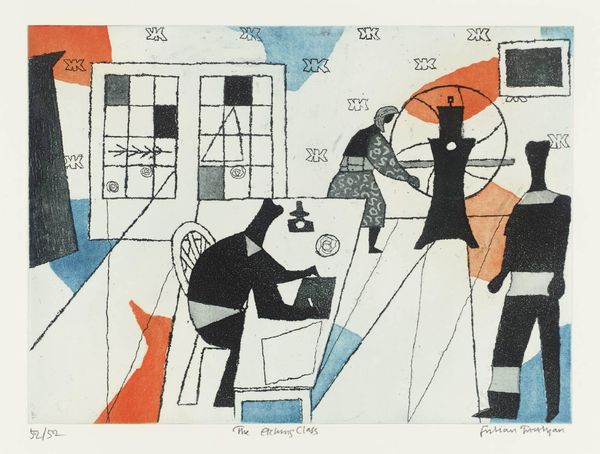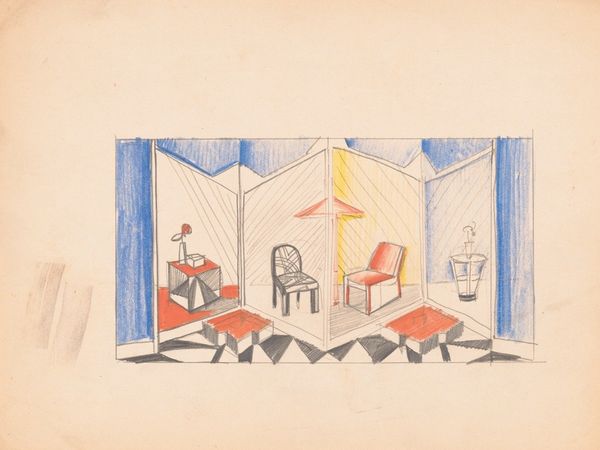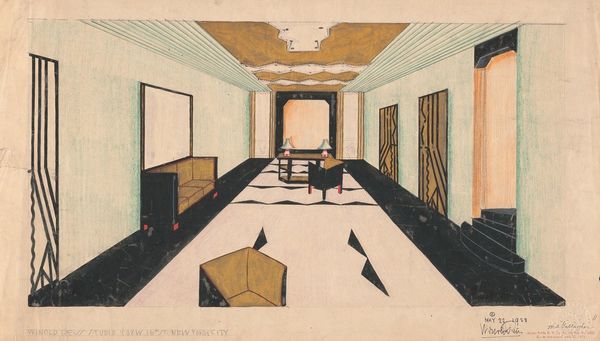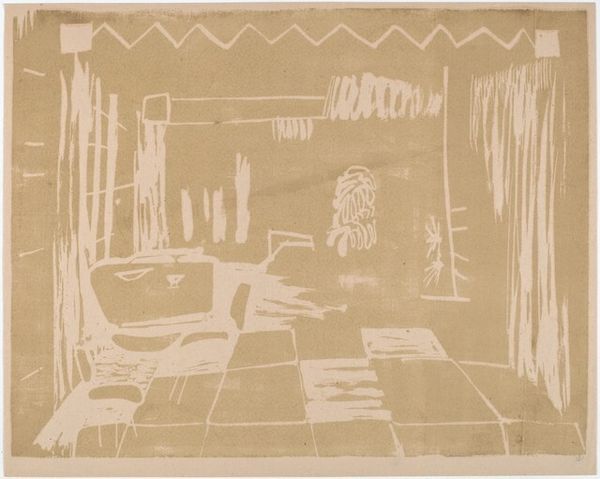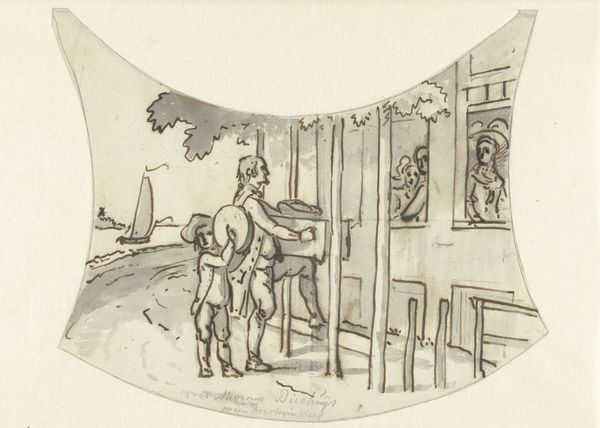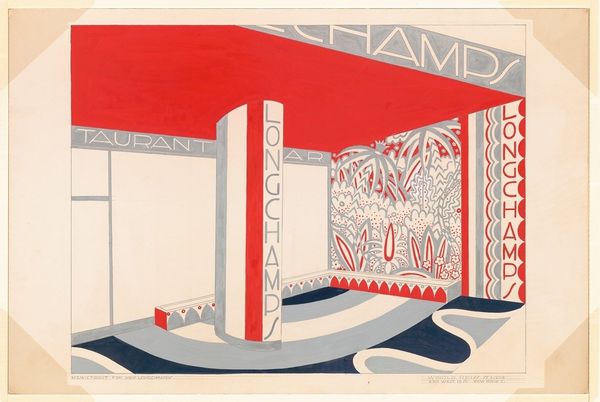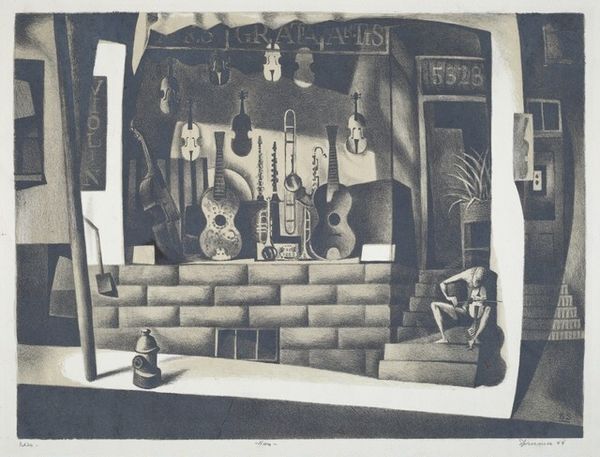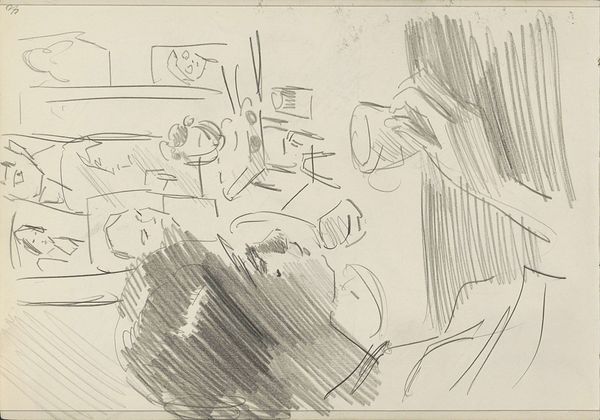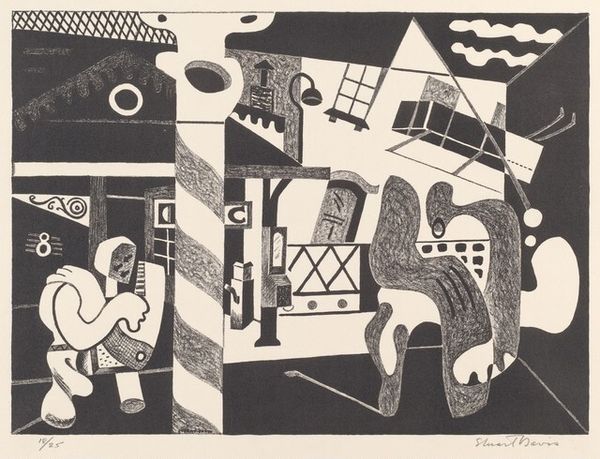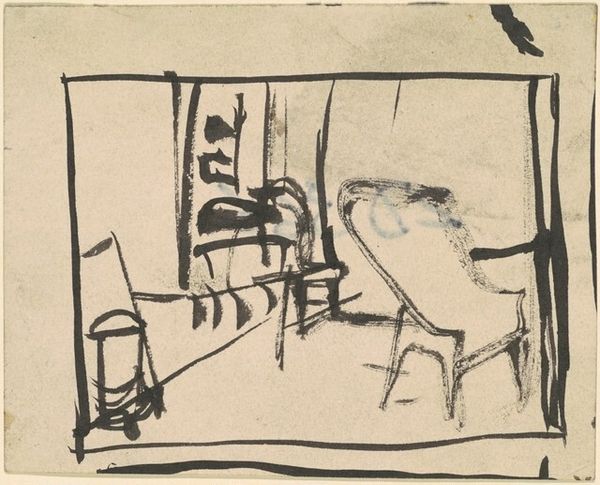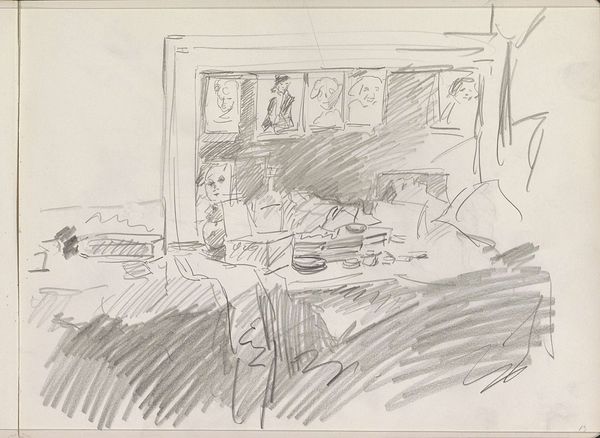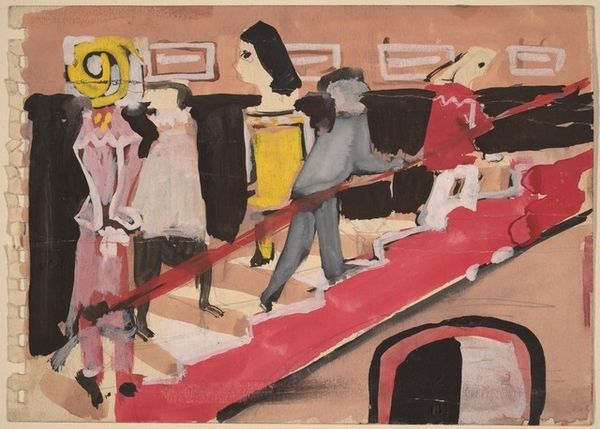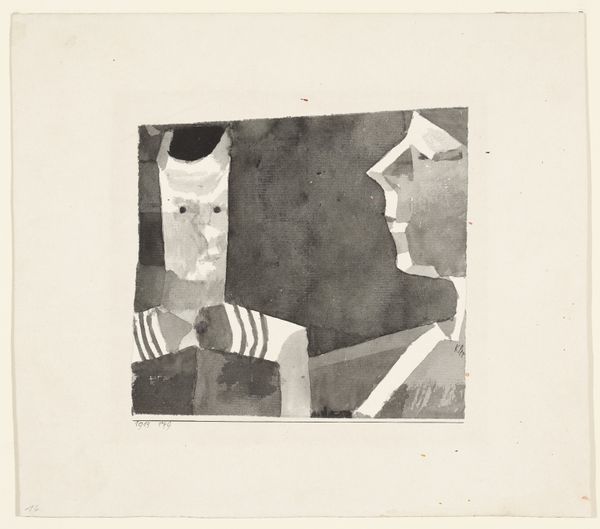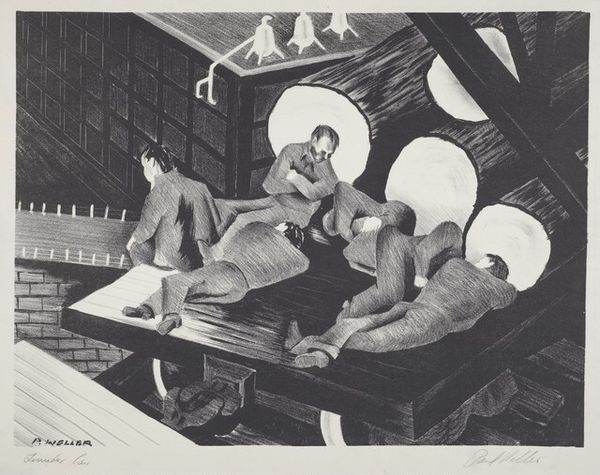
Dimensions: image: 352 x 479 mm
Copyright: © The estate of Julian Trevelyan | CC-BY-NC-ND 4.0 DEED, Photo: Tate
Editor: This is Julian Trevelyan's "Durham Wharf," and I'm struck by its dreamlike atmosphere. The stark shapes and silhouetted figures create such a sense of mystery. How do you interpret this work in light of social and cultural contexts? Curator: Trevelyan's work often reflects the anxieties and aspirations of post-war Britain. Notice the geometric forms, perhaps alluding to modernist reconstruction. Consider the role of the artist within society at that time; a witness, a commentator? What does the interior space suggest to you? Editor: I see a space filled with creation, with the camera and the painter’s table. Perhaps the artist is observing these figures, capturing their essence in a time of change? Curator: Precisely. And how might those figures represent different social roles or identities being renegotiated in that era? It's a visual record and an interpretation. Editor: That makes me see the piece in a completely new way, as a commentary on the shifting roles in society. Thank you! Curator: Indeed. By engaging with the socio-historical context, we find Trevelyan speaks beyond his time.
